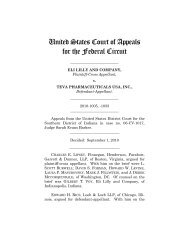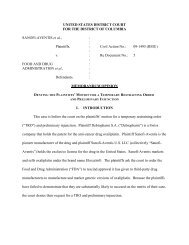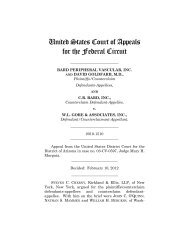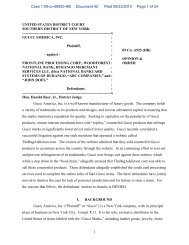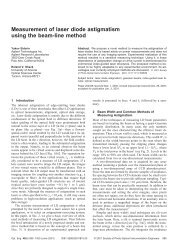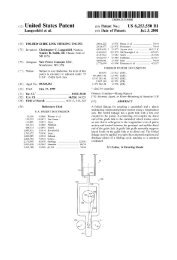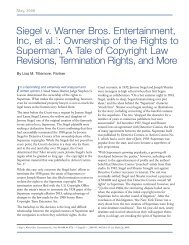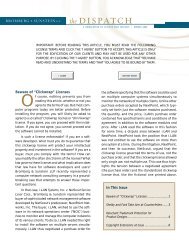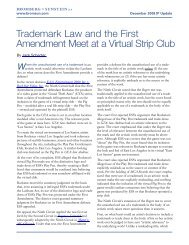Jurisdiction and Contract Formation
Jurisdiction and Contract Formation
Jurisdiction and Contract Formation
Create successful ePaper yourself
Turn your PDF publications into a flip-book with our unique Google optimized e-Paper software.
(c) Except as otherwise provided in subsection (d), if this [Act] or a term of a contract under this<br />
[Act] conflicts with a consumer protection statute [or administrative rule], the consumer protection<br />
statute [or rule] governs.<br />
(d) If a law of this State in effect on the effective date of this [Act] applies to a transaction governed<br />
by this [Act], the following rules apply:<br />
(1) A requirement that a term, waiver, notice, or disclaimer be in a writing is satisfied by a record.<br />
(2) A requirement that a record, writing, or term be signed is satisfied by an authentication.<br />
(3) A requirement that a term be conspicuous, or the like, is satisfied by a term that is conspicuous<br />
under this [Act].<br />
(4) A requirement of consent or agreement to a term is satisfied by a manifestation of assent to the<br />
term in accordance with this [Act].<br />
[(e) The following laws govern in the case of a conflict between this [Act] <strong>and</strong> the other law: [List<br />
laws establishing a digital signature <strong>and</strong> similar form of attribution procedure.]]<br />
Legislative Note: If there are any consumer protection laws that should be excepted from the<br />
electronic commerce rules in subsection (d), those laws should be excluded from the operation of<br />
that subsection.<br />
SECTION 106. RULES OF CONSTRUCTION.<br />
(a) This [Act] must be liberally construed <strong>and</strong> applied to promote its underlying purposes <strong>and</strong><br />
policies to:<br />
(1) support <strong>and</strong> facilitate the realization of the full potential of computer information transactions;<br />
(2) clarify the law governing computer information transactions;<br />
(3) enable exp<strong>and</strong>ing commercial practice in computer information transactions by commercial<br />
usage <strong>and</strong> agreement of the parties;<br />
(4) promote uniformity of the law with respect to the subject matter of this [Act] among States that<br />
enact it; <strong>and</strong><br />
(5) permit the continued expansion of commercial practices in the excluded transactions through<br />
custom, usage, <strong>and</strong> agreement of the parties.<br />
(b) Except as otherwise provided in Section 113(a), the use of m<strong>and</strong>atory language or the absence of<br />
a phrase such as "unless otherwise agreed" in a provision of this [Act] does not preclude the parties<br />
from varying the effect of the provision by agreement.<br />
(c) The fact that a provision of this [Act] imposes a condition for a result does not by itself mean<br />
that the absence of that condition yields a different result.<br />
(d) To be enforceable, a term need not be conspicuous, negotiated, or expressly assented or agreed<br />
to, unless this [Act] expressly so requires.<br />
SECTION 107. LEGAL RECOGNITION OF ELECTRONIC RECORD AND<br />
AUTHENTICATION; USE OF ELECTRONIC AGENTS.<br />
(a) A record or authentication may not be denied legal effect or enforceability solely because it is in<br />
electronic form.<br />
(b) This [Act] does not require that a record or authentication be generated, stored, sent, received, or<br />
otherwise processed by electronic means or in electronic form.<br />
- 12 -



